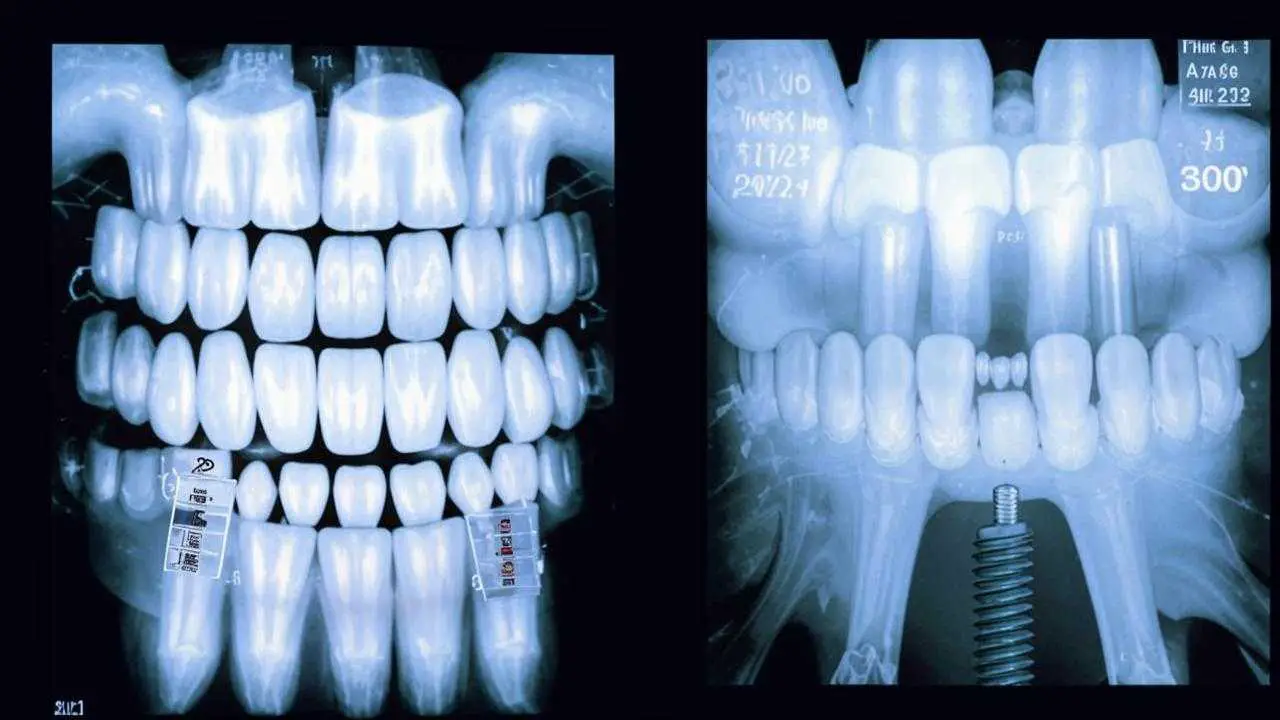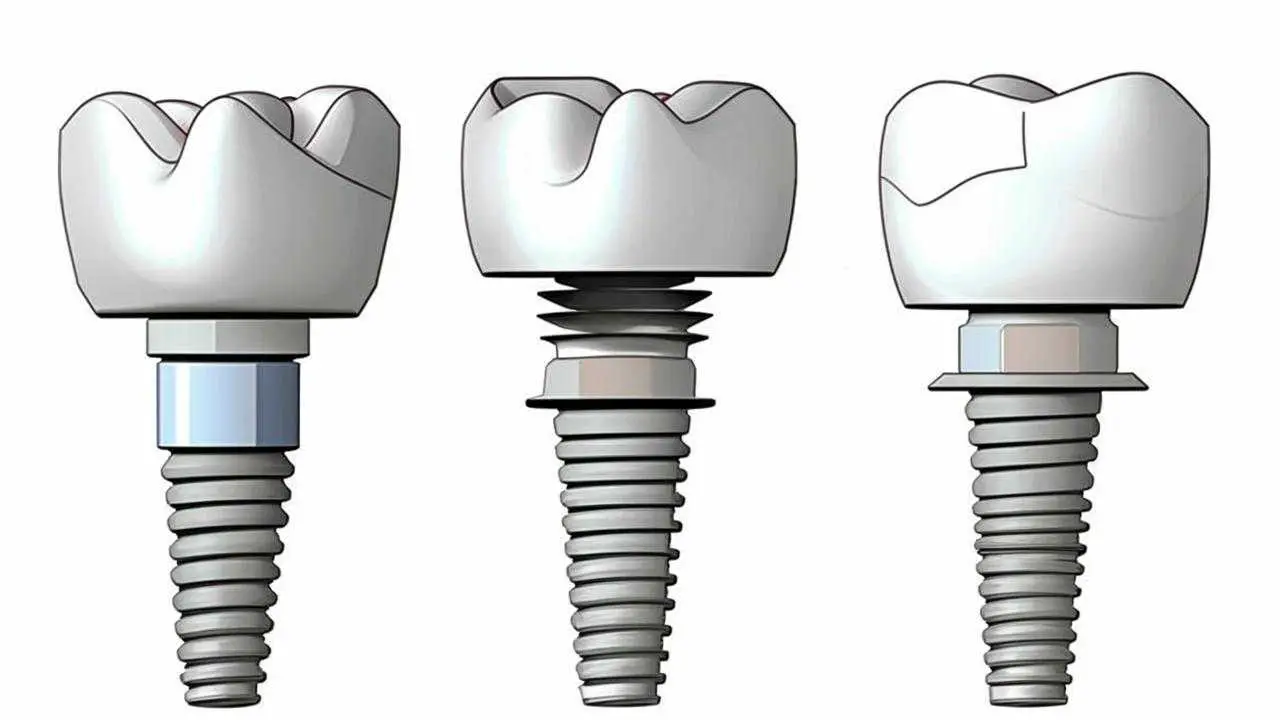Implantation is a successful and effective method of restoring teeth. It is the most technologically advanced and the safest. But, what to do if the implants do fall out? And who is to blame? Let’s talk at once, that according to the long-term statistics it is fixed, rejection of the implant happens only in 1-2% of cases from the total number. And the reasons why dental implants fall out are sufficiently studied to avoid this even at the stage of planning prosthetics on dental implants. But there are a number of factors that are beyond the doctor’s control. The patient is solely responsible for the implant falling out.
インプラント脱落の兆候
例えば、人工歯根が安定性を失っているなど、インプラントに異常があると感じ、判断することは可能です。このような場合は、手術や補綴物の取り付けを行った医師の診察を受ける価値があります。受診を遅らせないことを強くお勧めします。
Signs of peri-implantitis on X-rays
Symptoms:
- swelling and redness of the gum around the implanted tooth that does not go away for 5 days after surgery;
- pain that does not depend on pressure, but is present all the time. It is worse if painkillers do not help;
- bleeding of the hole, discharge of blood for several days;
- the appearance of pus with light pressure;
- breath odor (putrid);
- loose soft tissue adherence to the titanium post, a feeling that the implants have come out of the gum;
- fever, for several days (more than 3-4 days) or appeared after a seemingly calm condition;
- obvious wobbling, mobility of the implanted rod and its parts: the implant crown, plug, gum shaper have come off.
If you are concerned about one or more of these symptoms, consult your doctor. The success of osseointegration in most cases can be seen in the first weeks to months. Therefore, this period and all sensations of the patient are very important, not to miss complications that are easier to treat, correct now and prevent the implants from falling out later. The final indicator of engraftment – full stability of the artificial root, normal color and condition of the gums around after 2-6 months, also regular visits to the surgeon and scans if necessary will help to keep the situation under control.
What are the causes of prolapse
Implant dentists, based on their clinical experience and colleagues, have identified situations, time periods that indicate causes of tooth implant prolapse.
Who may be responsible for a tooth implant post or part of a tooth implant falling out:
- The fault of the manufacturer of a substandard implant system. The product is made without proper cleaning, containing inappropriate impurities, which inhibits osseointegration;
- medical error during surgery;
- orthopedic construction (crown, prosthesis) is selected, fabricated in violation – omissions of the technician, orthopedist;
- the patient did not follow the doctor’s recommendations;
- allergic reaction to the material;
- independent circumstances: trauma, sudden deterioration of health, the emergence of a serious illness.
Let’s consider some of the factors why implants fall out in more detail.
To begin with, if an implant falls out a year or several years after implantation, the responsibility for this most likely lies with the patient or unplanned circumstances. It is extremely difficult, almost impossible, to prove that the manufacturer or the doctor is at fault. Because if something did not go according to the planned treatment protocol, all signs indicating whether a dental implant could fall out, complications, would have been visible in the first month.
After a long period of time, the causes of implant loss can be as follows:
- mechanical trauma, a blow that damaged the bone of the jaw in the place where the titanium root is installed;
- failure to observe the rules of hygiene;
- refusal of annual check-ups with a dentist.
If the crown comes off the implant, it is worth thinking about the load on the implant and the method of fixation. There may have been errors in the fabrication of the structure in the dental laboratory. The denture may also rub the gum, causing it to become inflamed right at the point of contact with the titanium post.
について doctor’s actions that caused the implants to fall out:
- not fully planned treatment at the stage of collecting anamnesis, the doctor did not familiarize himself with the patient’s diseases that are contraindications to implantation;
- underestimated bone tissue condition;
- the chosen location for the pin is incorrect;
- errors during surgery: poorly prepared bed, incorrectly selected implant, deviation from the protocol.
Common reasons why dental implants fall out:
- poor quality implants;
- allergy to titanium alloy (extremely rare, sensitivity to impurities in the composition is possible);
- diseases preventing osseointegration: insulin dependence, immune diseases. The body does not accept a foreign body;
- non-compliance with the recommendations after implantation;
- violation of the installation of the implantation system, preoperative studies, medical error;
- smoking affects the circulatory system as badly as the lungs, spasms in the blood vessels occur, tissues are poorly oxygenated, including tissues near the implant;
- independent and unforeseen circumstances: injuries, diseases after implantation.
What elements of implants can fall out
The implant consists of several parts and when inserted, a plug, shaper and abutment are added:
- The gum shaper has fallen out of the implant. This can be caused by the implant being too deep and simply overgrowing the mucosa. Inflammation can also cause the shaper to fall out;
- implant plug, abutment fell out – an error in the technology of its installation or non-compliance with the doctor’s recommendations;
- tooth implant post has fallen out. We have considered the reasons above.
In all cases, you should urgently contact your doctor.
What should I do if an implant or part of an implant has fallen out?
What to do if a tooth implant has fallen out of the gum? Go to the clinic where the surgery took place. The doctor will make a thorough examination, refer to X-rays, possibly prescribe other types of diagnostics. It is necessary to assess the current state of the bone tissue and, of course, the integrity of the structure.
How to avoid such a problem
Most importantly, to avoid such situations and questions: what to do if the tooth implant fell out of the gum, choose a dental clinic and a doctor with a license, recommendations, according to the reviews of friends and acquaintances. Such specialists work with proven manufacturers of implant systems of high quality. The accumulated work experience helps the doctor to choose the best correct solution and treatment plan. His qualification is a certain guarantee of a high implantation result.
Very little is required from the patient to prevent the implant from falling out:
- Follow all the recommendations of the implant dentist;
- not to quit the course of medications prescribed for the postoperative period;
- try to stop smoking;
- do not deviate from scheduled visits to the dentist;
- make it a habit to have your teeth cleaned twice a year;
- perform daily dental hygiene effectively;
- independently monitor your health and the condition of your teeth, something did not like – immediately make an appointment with the doctor.
Again, osseointegration of dental implants is successful in 97-98% of cases. By following simple rules, you can walk with beautiful artificial teeth for the rest of your life.

